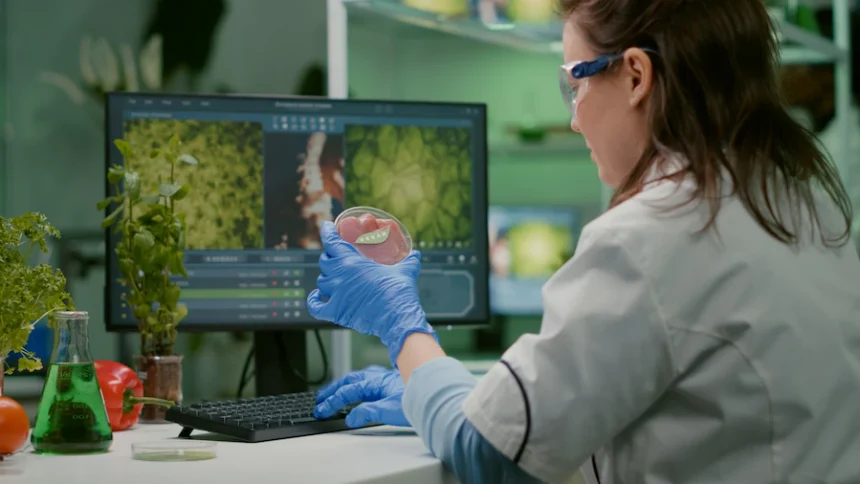Biotechnology has a significant potential to revolutionize agroprocessing, bringing about various benefits such as increased crop productivity, improved nutritional content, enhanced food safety, and reduced environmental impact. Here are some areas where biotechnology is making a significant impact in agroprocessing:
- Genetic Modification: Biotechnology allows scientists to genetically modify crops for desirable traits, such as increased yield, disease resistance, and tolerance to environmental stress. Genetic modification techniques, like recombinant DNA technology, enable the introduction of specific genes into crops to enhance their characteristics.
- Crop Improvement: Biotechnology plays a crucial role in crop improvement through methods like marker-assisted breeding and gene editing. Marker-assisted breeding enables the selection of plants with desired traits more efficiently by identifying specific DNA markers associated with those traits. Gene editing techniques, such as CRISPR-Cas9, allow for precise modification of specific genes in crops, enabling targeted improvements without introducing foreign genes.
- Biofortification: Biotechnology can be used to enhance the nutritional content of crops through biofortification. This involves genetically modifying crops to increase their levels of essential nutrients like vitamins, minerals, and proteins. For example, researchers have developed biofortified crops with increased iron, zinc, or vitamin A content to address nutrient deficiencies in certain regions.
- Enzyme Production: Biotechnology offers methods for producing enzymes through microbial fermentation or genetic engineering. Enzymes play a crucial role in agroprocessing industries by facilitating various processes such as fermentation, brewing, baking, and meat processing. Genetically modified microorganisms can be engineered to produce specific enzymes more efficiently and economically.
- Microbial Control: Biotechnology provides solutions for controlling pests and diseases in crops through the use of microbial agents. Biopesticides, which are derived from naturally occurring microorganisms, can be used as a safer alternative to chemical pesticides. These biopesticides target specific pests and have a lower environmental impact, making them an eco-friendly option for pest management.
- Waste Management: Biotechnology can aid in the efficient management of agricultural waste generated during agroprocessing. Microorganisms can be harnessed to break down organic waste materials, such as crop residues and animal manure, through processes like composting or anaerobic digestion. This helps in waste reduction, energy production, and the generation of valuable by-products like biofertilizers.
- Quality Control: Biotechnology tools, such as DNA-based techniques, can be employed for quality control and traceability in agroprocessing. These techniques enable the identification and authentication of raw materials, detection of contaminants, and monitoring of product integrity throughout the supply chain.
It is worth noting that while biotechnology offers significant potential, careful consideration should be given to regulatory frameworks, ethical concerns, and potential environmental impacts to ensure the safe and responsible application of these technologies in agroprocessing.
Join 'Farmers Mag' WhatsApp Channel
Get the latest Farming news and tips delivered straight to your WhatsApp
CLICK HERE TO JOIN






